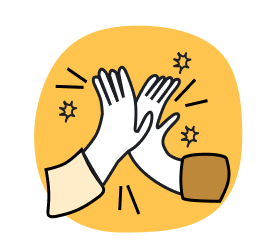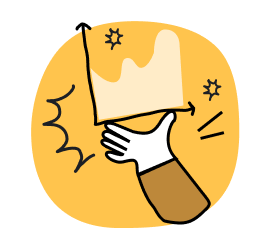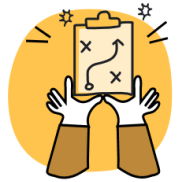Seeing through the symptoms
We combine the best clinical acumen with the latest technology to uncover the root cause of the observed symptoms or behaviours.

Disruptive mood dysregulation disorder (DMDD)
Intrusive, recurrent thoughts, images, or urges causing significant distress.

Intermittent Explosive Disorder
Repetitive behaviors or mental acts in response to obsessions.

Bipolar Disorder
Unusual behavior, increased goal-directed activity, grandiosity, flight of ideas, racing thoughts, rapid speech, needing less sleep, risk-taking behavior

Did you know?
Symptoms of bipolar disorder and DMDD can overlap with conditions like ADHD, ODD, conduct disorder, depression, and anxiety. It’s important to closely examine these overlaps when a child exhibits oppositional behavior, anger outbursts, and temper tantrums.

Uncertain about the diagnosis?
OUR DIAGNOSTIC PROCESS
Understanding your unique mental health needs
Each individual is different. And so is our mental health program that supports unique needs of every member.

1
Online psychiatry assessment
Take a comprehensive online assessment of your child’s psychiatric symptoms and share relevant medical and family history.

2
Psychiatric evaluation
Receive a comprehensive evaluation of your child’s emotional, cognitive, and behavioral functioning conducted by a board-certified provider.

3
Treatment Planning
Actively collaborate with your child’s provider to develop an effective treatment plan tailored to your child’s needs and get started on your wellness journey.
We place the child and their family at the heart of our care experience
Parent care
Facilitating your active role in your child’s incredible journey to mental well-being.

 Building coping skills
Building coping skills
Our guide empowers parents to teach their children essential stress management skills, including relaxation exercises like deep breathing and muscle relaxation, mindfulness practices, and strategies for handling distress. It guides parents in supporting their child’s development of emotional regulation and interpersonal effectiveness, fostering resilience and well-being.
 Effective behaviour management
Effective behaviour management
Utilize our DIY guides to master effective parenting techniques such as setting clear expectations, praising desired behaviors, establishing routines, and applying effective discipline. Create a behavior modification plan using practical strategies like rewards, consequences, and progress tracking to guide and motivate your child.
 Overcoming your child’s thinking errors
Overcoming your child’s thinking errors
Our self-help guide empowers you to recognize and address your child’s common thinking errors. It provides effective strategies to overcome cognitive distortions, promoting a healthier, more positive mindset and enhancing overall well-being.
Self Guide
Empower your child with self-guided care for mood dysregulation, enabling them to take control of their well-being.
 Practice Distress Tolerance
Practice Distress Tolerance
Using our self-help guide, your child will learn how to handle tough situations and strong emotions without making things worse. Through fun and easy activities, they’ll develop skills to stay calm, build resilience, and feel more in control during challenging times.
 Practice Emotion Regulation
Practice Emotion Regulation
Using our DIY guide, your child will learn how to understand and manage their emotions in a fun and engaging way. Through these activities, they’ll develop skills to feel calmer, happier, and more in control.
 Practice Mindfulness
Practice Mindfulness
Using our guide, your child will learn how to stay calm, focused, and happier by practicing mindfulness. Through fun and easy activities, they’ll develop skills to be present in the moment and enhance their overall well-being.

Mindweal Resources
Mental health resources just for you
Don’t have all the anwers yet?
That’s okay! As we’ve put together easy guides and helpful articles just for you.

Blog
Your guide to mental health conditions in children with ADHD

Blog
What is an advanced ADHD testing ? Exactly what to expect?

Self-Care and Healthy Habits
My child has ADHD and has gained weight. What can I do?

After-hours Crisis Care
Our emergency same-day appointments minimize after-hours crises. But, if you’re in crisis outside our working hours (Mon to Fri from 8 AM to 5 PM), call 911 or visit the nearest ER for immediate help and safety assessment.

Our psychiatric experts will help you find the right path forward for your child.








 Personalized medication management
Personalized medication management Comprehensive support strategies
Comprehensive support strategies
 Tailored prescriptions
Tailored prescriptions Thorough monitoring
Thorough monitoring Expert guidance
Expert guidance
 Education Support
Education Support Self-help toolkits
Self-help toolkits Parent’s guides
Parent’s guides
 DBT
DBT Science-backed
Science-backed ERT
ERT